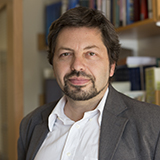Many early-phase studies towards an HIV cure or controlled remission involve substantial risks for study participants, but a host of ethical solutions are conceivable.
 For most patients with HIV who have access to antiretroviral treatment and use it properly, that treatment works well. But the holy grail of HIV research remains finding a cure. Sometimes that means a literal, sterilizing cure that would remove HIV from the body. But increasingly the aim is to find a mere functional cure that would send HIV into sustained remission during which antiretrovirals would be unnecessary.
For most patients with HIV who have access to antiretroviral treatment and use it properly, that treatment works well. But the holy grail of HIV research remains finding a cure. Sometimes that means a literal, sterilizing cure that would remove HIV from the body. But increasingly the aim is to find a mere functional cure that would send HIV into sustained remission during which antiretrovirals would be unnecessary.
Early successes in cure-related research, most notably the apparent cure of “Berlin patient” Timothy Brown, prompted the International AIDS Society and the US National Institutes of Health to declare cure-related research a high priority. Recent successes in animal models have re-kindled hopes, and cure-related research is ongoing.
But there is a catch. Many of the early-phase cure-related studies that are currently planned or under way carry risks that are either very high or hard to quantify. These risks come from toxicity (e.g. of stem cell transplantation in an immunocompromised population), necessary interruptions to antiretroviral treatment (either short “pauses” or intentionally longer breaks), or invasive physical exams. They affect study subjects and, sometimes, third parties like sexual partners or foetuses.
While high or unknown risks are a mainstay of early-phase trials in areas like cancer research, cure study participants typically have a safe and efficacious alternative to those risks: remaining on antiretrovirals. Can we justify asking patients who are doing well on antiretrovirals to accept the risk and uncertainty of many HIV cure-related trials? If we cannot, we might need to give up on the hope of curing HIV, or of achieving controlled remission.
These ethical questions about HIV cure-related trials were first raised by an activist, then asked again. They also arise in human subject research beyond HIV cure-related studies: what should we do when a study looks to be very risky on balance to study participants? Are we ever permitted to compromise the individual’s objective interests, in the pursuit of collective goals? What are legitimate ways of pre-empting this dilemma? An entire recent issue of Journal of Medical Ethics is dedicated to clarifying and trying to answer these questions. Cure investigators, HIV clinicians, patients, lawyers and philosophers examine ways to keep these studies ethical by reducing the risk to participants, increasing the benefits to them, relying on their informed consent, or pointing to the potentially social benefits of cure-related studies.
As one illustration, contributions by philosopher Lara Buchak, bioethicist, nurse, and lawyer Emily Largent, and AIDS activist David Evans assess how much the potential benefits to study participants, ranging from the remote hope of being cured through financial incentives to the satisfaction of having helped others, can legitimately offset study risks. Are such benefits ethically-important enough that, in conjunction with steps to mitigate risks, to ensure high-quality consent, and to increase the prospect of far-reaching global health impact, they can justify asking individuals to put their own health in danger?
Nir Eyal, associate professor of Global Health and Population, Harvard TH Chan School of Public Health.
Competing interests: None declared.
